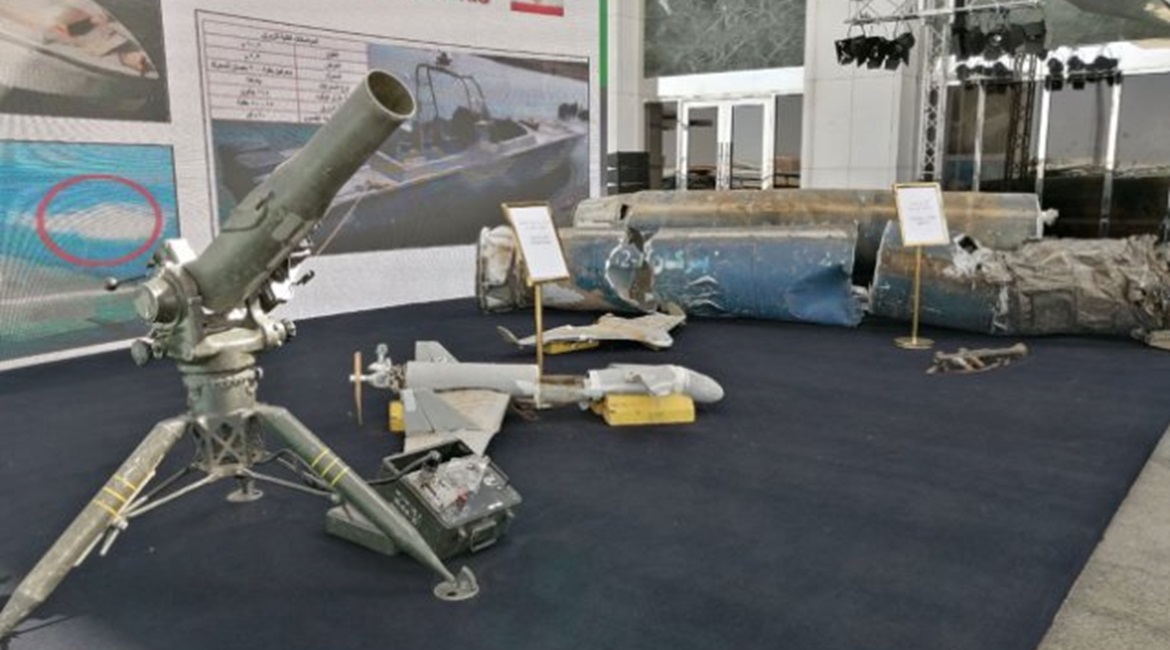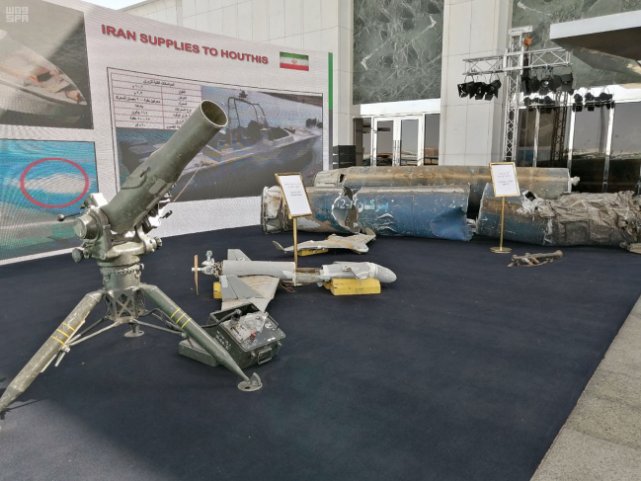
Senior US officials have gone on record to say that Iran carried out an attack on four tankers anchored off Al-Fujairah in the United Arab Emirates (UAE) on 12 May

A TOW anti-tank missile system, UAVs, and the remnants of a ballistic missile can be seen in an exhibition of weaponry that Iran has supplied to the Houthis. The exhibit was put on in Jeddah for the Gulf Co-operation Council's (GCC's) emergency summit. (Saudi Press Agency)
“I think it’s clear these [attacks] were [carried out with] naval mines almost certainly from Iran,” National Security Advisor John Bolton said in Abu Dhabi on 29 May. “There is no doubt in anybody’s mind in Washington who is responsible for this and I think it’s important that the leadership in Iran know that we know.”
He noted that there had also been unmanned aerial vehicle (UAV) attacks against pumping stations along Saudi Arabia’s East-West Pipeline on 14 May, a rocket attack near the US Embassy in Baghdad four days later, and a previously unreported failed attack on the eastern Saudi city of Yanbu that were “consistent with the very serious threat information that we had been obtaining, one reason that we increased our deterrent capability in the region since those three incidents”.
The UAV attacks were claimed by the Iranian-backed rebel group Ansar Allah (Houthis), while Tehran has denied any involvement in the tanker bombings.
Bolton did not say how Iran had been conclusively linked to the tanker attack, saying this was “something for the ship owners and countries involved to release at their discretion”. However, he told journalists in London on 30 May that evidence of Iranian involvement would be presented to the UN Security Council early in the following week.
Looking to read the full article?
Gain unlimited access to Janes news and more...




